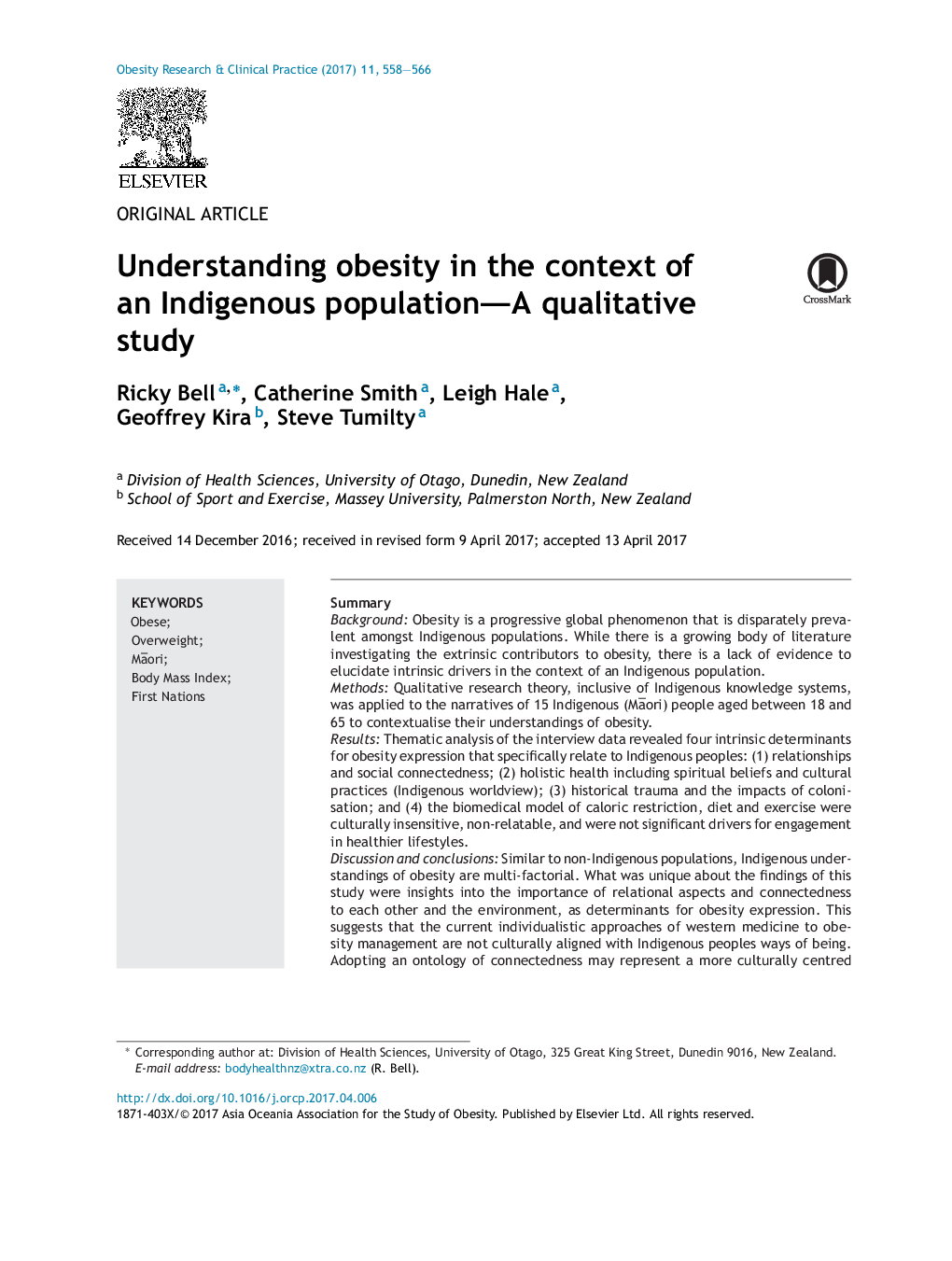| کد مقاله | کد نشریه | سال انتشار | مقاله انگلیسی | نسخه تمام متن |
|---|---|---|---|---|
| 5619093 | 1578891 | 2017 | 9 صفحه PDF | دانلود رایگان |

SummaryBackgroundObesity is a progressive global phenomenon that is disparately prevalent amongst Indigenous populations. While there is a growing body of literature investigating the extrinsic contributors to obesity, there is a lack of evidence to elucidate intrinsic drivers in the context of an Indigenous population.MethodsQualitative research theory, inclusive of Indigenous knowledge systems, was applied to the narratives of 15 Indigenous (MÄori) people aged between 18 and 65 to contextualise their understandings of obesity.ResultsThematic analysis of the interview data revealed four intrinsic determinants for obesity expression that specifically relate to Indigenous peoples: (1) relationships and social connectedness; (2) holistic health including spiritual beliefs and cultural practices (Indigenous worldview); (3) historical trauma and the impacts of colonisation; and (4) the biomedical model of caloric restriction, diet and exercise were culturally insensitive, non-relatable, and were not significant drivers for engagement in healthier lifestyles.Discussion and conclusionsSimilar to non-Indigenous populations, Indigenous understandings of obesity are multi-factorial. What was unique about the findings of this study were insights into the importance of relational aspects and connectedness to each other and the environment, as determinants for obesity expression. This suggests that the current individualistic approaches of western medicine to obesity management are not culturally aligned with Indigenous peoples ways of being. Adopting an ontology of connectedness may represent a more culturally centred approach, and help build epistemological resilience to mitigate rising obesity incidence in Indigenous populations.
Journal: Obesity Research & Clinical Practice - Volume 11, Issue 5, SeptemberâOctober 2017, Pages 558-566